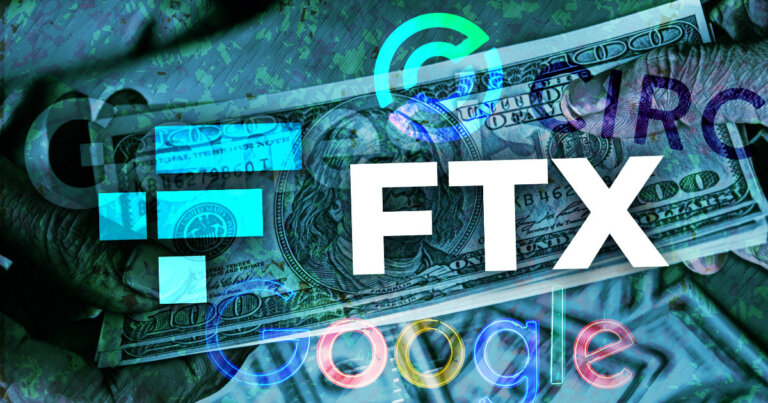 FTX creditors include Google, Meta, Circle, Genesis, govt. agencies
FTX creditors include Google, Meta, Circle, Genesis, govt. agencies FTX creditors include Google, Meta, Circle, Genesis, govt. agencies
The impact of the FTX meltdown has outstripped the crypto ecosystem and leeched into the mainstream tech industry and beyond.

Cover art/illustration via CryptoSlate. Image includes combined content which may include AI-generated content.
FTX finally revealed its complete list of creditors on Jan. 25 but withheld the names of nearly 9.6 million users in accordance with a court order.
The defunct crypto exchange owes millions of creditors, including U.S. and international government agencies, law firms, banks, media outlets, charitable foundations, marketing agencies and more.
The creditor matrix brings to light the impact of FTX’s collapse — which has spread far beyond the crypto ecosystem. Global finance and tech firms, including Ant Group, Google, Amazon, Meta, Netflix, LinkedIn and Apple, appear on the list of FTX creditors.
Media outlets, including Bloomberg Finance, The Wall Street Journal, Coindesk, Benzinga and Condé Nast are among FTX’s creditors. The documents, however, do not reveal the amount owed to each creditor.
Notable crypto firms
The collapse of FTX dealt a heavy blow to the crypto ecosystem, with firms scrambling to lessen the impact. The most notable crypto-related firms on FTX’s list of creditors include Coinbase, USDC issuer Circle, Galaxy Digital and Binance Capital Management. The bankrupt firm is also indebted to crypto exchange AAX, Bitgo Prime and Polygon Network.
Notably, FTX owes money to several crypto firms that filed for bankruptcy before and after its collapse. These include BlockFi and Genesis Global — which filed for bankruptcy in November 2022— and Voyager Digital, which filed for bankruptcy four months before the FTX meltdown.
Crypto research and investigation firms Chainalysis, TRM Labs and Nansen are also among FTX’s creditors.
U.S and international government agencies
In the U.S., FTX owes money to the Departments of Revenue of Minnesota in the north to Texas in the South and from Connecticut in the east to California in the west. The U.S. Secretary of State of California, Colorado, Delaware, Arkansas, Alabama and others also appear on the FTX creditors list.
The Alabama Securities Commission, Connecticut Department of Banking, Arizona Department of Insurance and Financial Institutions and Arkansas Securities Department are among the other U.S. government agencies FTX owes money. The Chicago Mercantile Exchange and the U.S. Commodity Futures Trading Commission (CFTC) are also creditors of FTX, according to the filing.
The Ministry of Finance of the Bahamas, the Australian Attorney General’s Department, the Cyprus Securities and Exchange Commission, the Abu Dhabi Department of Finance and the Government of the Virgin Islands are among some of the international government agencies among FTX creditors. The list also includes Japan Financial Services Agency, Hong Kong’s Monetary Authority, the Securities and Futures Commission, Turkey’s Banking Regulation and Supervision Agency and Gibraltar Financial Services Commission.
Prominent banks and investment firms
FTX owes money to banks within and outside the U.S. The most notable names include Citi Group, Silvergate, Goldman Sachs, JP Morgan Chase, DBS Bank, Bank of Cyprus and the Commercial Bank of Dubai.
BlackRock, Sequoia Capital and Pantera Capital are some of the investment firms listed among FTX creditors.
Hotels, airlines and food delivery services
FTX splurged on luxury hotel stays and some of these hotels appeared on its creditors’ list. AC Hotels by Marriott, Grand Hyatt and Airbnb are among FTX’s creditors.
Alaska Air, American Airlines, private jet firm Apollo Jets and British Air are included in the list of FTX creditors.
Uber Eats and DoorDash are food delivery services to which FTX owes money.


































































